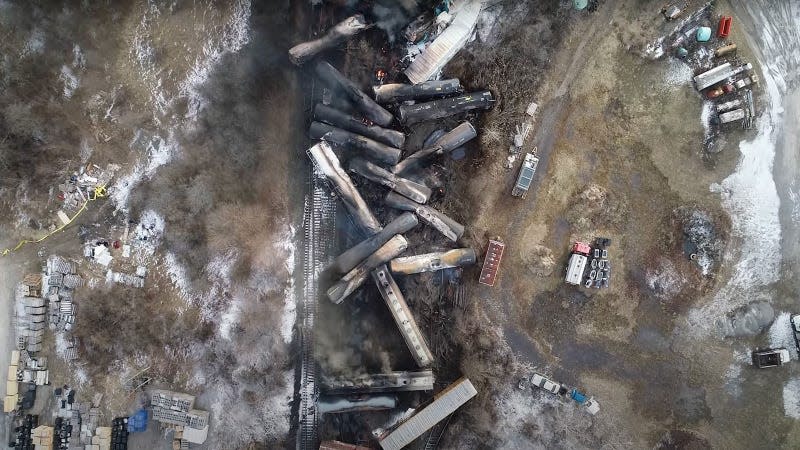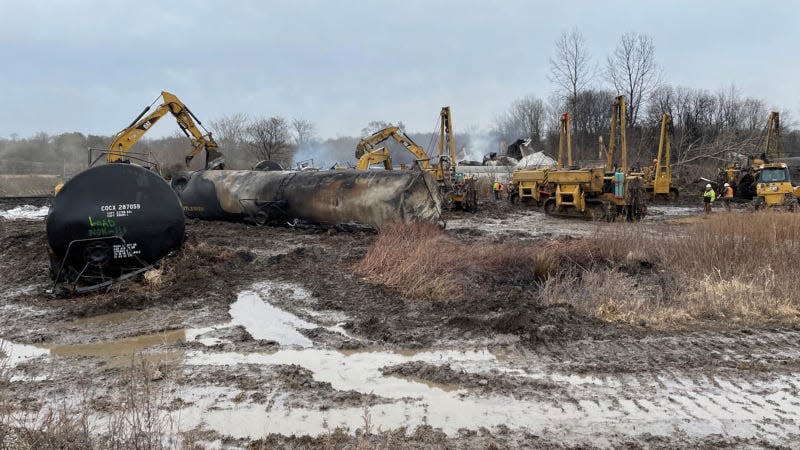U.S. Railroad Managers Told Employees to Ignore Wheel Bearing Problems

A train carrying hazardous materials crashed in East Palestine, Ohio, last month.
Last month, a Norfolk Southern freight train carrying 20 cars filled with hazardous chemicals derailed in East Palestine, Ohio. After the crash, safety experts decided the best course of action was to carry out a controlled burn of the toxic chemicals inside the cars, to prevent an enormous explosion that they warned would send shrapnel flying for miles around.
In case you missed it:
It was a disaster of epic proportions and has since sparked outrage over the handling of the crash and the concerns that were raised in the buildup to the incident. Now, The Guardian has uncovered audio that includes a rail worker being told by their superior to skip certain safety checks that could have uncovered the faulty components that caused February’s rail incident.
Read more
According to the outlet, a leaked audio recording heard an employee query their manager about safety checks on wheel bearings. In the clip, the manager is heard telling the employee to stop making such checks and marking cars for repair in order to speed up train times. The site reports:
In late 2016, Stephanie Griffin, a former Union Pacific carman, went to her manager with concerns that she was getting pushback for tagging – or reporting for repair – railcars. Her manager told her it was OK to skip inspections.
Griffin asked if the manager could put that in writing. “That’s weird,” said the manager. “We have 56 other people who are not bad-ordering stuff out there. You’re definitely not going to get in trouble for it.”
Griffin said: “He refused to bad-order [mark for repair] cars for bad wheel bearings. My boss took issue with it because it increased our dwell time. When that happened, corporate offices would start berating management to release the cars.”

The crash spewed toxic fumes into the air following a controlled burn of the hazardous cargo.
The audio is particularly bad as initial investigations into the Ohio crash have so far found that a faulty wheel bearing could have caused the incident. In the case of the Norfolk Southern derailment, investigators found that wheel bearings on the train were 253°F above ambient temperature in the lead-up to the incident.
The increased temperature on the wheels was detected by hot bearing detectors (HBDs) that lined the train’s route, which should have warned rail workers of the issues onboard. However, Norfolk Southern’s policy to stop trains only when sensors pick up temperatures 170°F or higher meant the issue wasn’t addressed as quickly as it could have been.

 Yahoo Autos
Yahoo Autos 